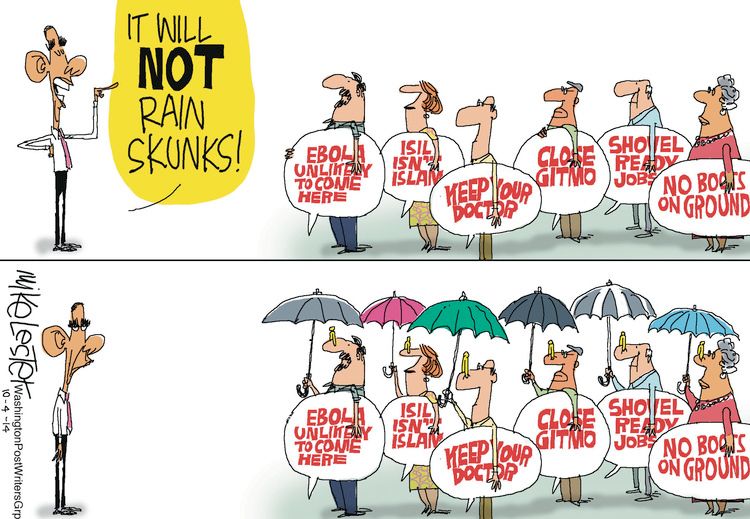[h=1]
Politics: In Arkansas, outgoing Democrat governor pardons son's drug conviction[/h]
Image Credit: U.S. Department of Agriculture via Flickr [h=3]Published by:
Dan Calabrese on Thursday November 13th, 2014[/h]
Alternate headline: He's leaving office anyway so what the hell.
I realize some of you think there should be no drug convictions, ever, of anyone, for anything . . . and you always make your feelings known. I don't care about them any more today than I ever do, but it's not really the point anyway. A governor pardoning his own son?
Granted, the Parole Board did recommend it, although parole boards also consist of people who are appointed and no one has any idea who inflences them. Thing is, Kyle Beebe's three-year sentence of supervised probation was long ago served (reminder to you stoners . . . almost no one, and certainly not this guy, "rots in prison" for a pot conviction), and this does little more than expunge his record, but in a very public way that
ensures just about everyone will remember it:
Beebe, who is set to leave office in January due to term limits, said he would pardon his son Kyle, now 34, for his 2003 felony conviction of marijuana possession with intent to deliver, local broadcaster KATV said.
"Kids, when they're young, do stupid stuff. He was no different," Beebe told KATV in an interview published online. "If they've straightened up, to get their life back on track and have a second chance, so this is no different. It's different because it's my son."
Kyle Beebe was sentenced to 3 years supervised probation and fined, KATV reported. The Arkansas Parole Board last month recommended that he be pardoned, records on the agency's website shows.
So according to the governor's logic, pardons are in order for "stupid stuff" that kids do when they're young, precisely because they were young and stupid when they did them. Of course, there is stupid (taking the cookies out of the oven with your bare hands) and then there's felony stupid (dealing drugs). Generally society has recognized the difference sufficiently to mete out criminal penalties only for those in the latter category, and has understood that certain kinds of stupid require such a response precisely because they wreak havoc on society in ways that legislatures saw fit to outlaw.
I think the bigger issue here, though, is the ability of governors (and presidents) to issue pardons pretty much at will - especially recognizing the trend that typically sees them go nuts with it right around the time they're getting ready to leave office and the election to choose their successor is already over, which means that nothing they do at that point will have political consequences.
We all remember Bill Clinton's pardon of Marc Rich precisely because it was so brazen. Maybe just as memorable was George W. Bush's decision not to pardon Scooter Libby, simply because it was so unusual, and it really pissed off Dick Cheney.
But governors generally have the same power, and it depends entirely on their sole discretion. You want to pardon your son? Knock yourself out. In fact, most even have the power to
pardon themselves if they want.
As a general principle, I sort of like the idea that the governor can serve as a check on a justice system that might, for whatever reason, mete out justice that doesn't quite square with what's deserved, or that a convict who has truly changed might have this one ray of hope. But in actual practice, it's almost always exercised in this on-the-way-out-the-door fashion because governors don't want to answer for it when they're still accountable in the political arena.
I realize this would have to happen on a state-by-state basis, although you could do it at the federal level with a constitutional amendment, but what about restricting the power such that it can't be used between an election and beginning of a new president's/governor's term? That way you don't see it done under cover of darkness like this. The governor can still pardon his son if he wants, but now he'd at least have to answer to the voters, even if it only means the nominee of his party running to replace him has to answer for it.
By the way, the Reuters story excerpted here mysteriously left out the detail that is the governor's party. Just an oversight. He's a Democrat. I'm sure that if he were a Republican, you wouldn't see that in the lead. Yes. I'm very sure of that.
 A new CNN/ORC poll released less than two weeks out from November's election finds that the majority of voters are angry over the direction the country is headed and are opposed to Obama's presidency.
A new CNN/ORC poll released less than two weeks out from November's election finds that the majority of voters are angry over the direction the country is headed and are opposed to Obama's presidency. A new CNN/ORC poll released less than two weeks out from November's election finds that the majority of voters are angry over the direction the country is headed and are opposed to Obama's presidency.
A new CNN/ORC poll released less than two weeks out from November's election finds that the majority of voters are angry over the direction the country is headed and are opposed to Obama's presidency.
 ucking:
ucking:

 David Jackson
David Jackson




















